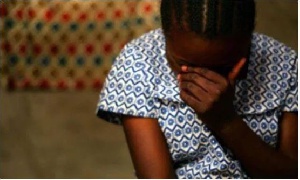The Kpandai District in the Northern Region recorded thirty-two assault cases in 2016, topping the list of sexual and gender based violence.
Abduction and kidnapping came second with 10 cases.
Other cases include rape, defilement, abortion, forced marriage and infant abandonment recorded between one and eight cases.
The figures were contained in the first-ever sexual and gender-based violence data released by the domestic violence desk at the Kpandai District Police.
Sexual and gender-based violence has been a topical issue in Ghana, with several interventions by stakeholders to break religious, cultural and social barriers inhibit reporting of such human rights abuse.
Victims who report incidents are expected to receive justice whiles perpetrators are punished.
However, the fear of being ostracized has forced some victims to accept and live with their ordeal. In the Northern Region where some traditions inhibit women from speaking out, some victims of sexual abuse have been left in despair.
Available records indicate the Northern Region tops the acceptance rate for domestic violence, recording 75 per cent of sexual and gender based violence in Ghana.
The Kpandai district seems to have taken the lead in breaking the silence on abuses among the six districts where gender desks have been established. The data on abuses in 2016 was released despite the social, religious, and cultural implications associated with such reportage.
This follows the constitution of the neighbourhood protection committee in the district where members act as paralegals to encourage people to report cases of gender-based violence. Living arrangements between victims and abusers, conflicting advocates and proximity to police stations are some challenges militating against efforts to increased reportage.
The Northern Regional Coordinator of DOVVSU, ASP Emmanuel Horlotu, said data provided by the domestic desk do not suggest an increase in cases but an increase in knowledge of citizens to report sexual and gender based cases.
“The sensational way the media report these cases create fear making it appear like they are on the increase which is not the case but rather knowledge of victims to report has increased. So what we have recorded here in Kpandai doesn’t mean the gender-based violence is on the rise but because people are getting enlightened and reporting” he said.
“Among our challenges now is the proximity to police stations, the entire district with about hundred communities has only two police stations, one in Kpandai township and the other in a village nearby so imagine how the rest of the communities will report cases to the station”, ASP Emmanuel Horlotu laments.
An orientation to further enhance the capacity and knowledge of members has been organized in Kpandai for the members of the neighbourhood protection committees. Anokye Daniel, a member of the committee, observed parents give undefined instructions to their female wards which he claimed do not give girls the protection they need.
“What I have observed is that the girls are comfortable sleeping with men in the town, that’s why they get pregnant… Instructions by their parents often says they shouldn’t play with their teachers so they see it normal to go close to other male characters than their teachers and these men have their way with them so I think parents should define their instructions to cover all men” he advised.
Regional News of Wednesday, 17 May 2017
Source: 3news.com

















